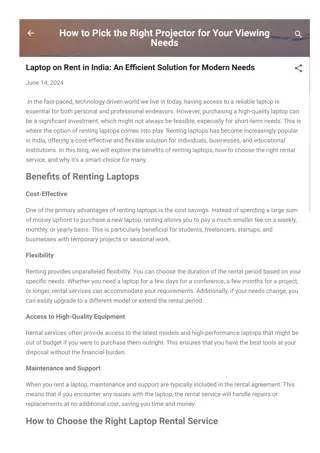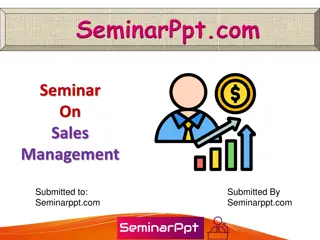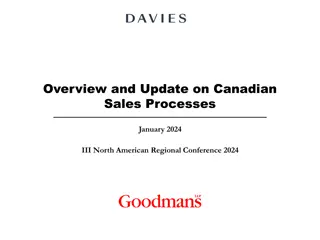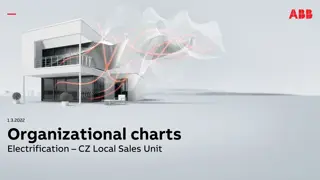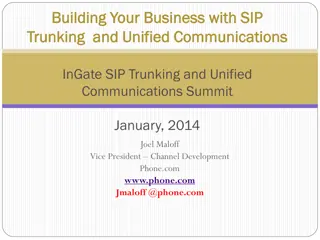
Best Practices for Parsonage Sales or Renting - Key Considerations
Consider important factors when selling or renting a parsonage such as financial implications, real estate market conditions, pros and cons, and following relevant guidelines like the Book of Discipline. Understand the process, obligations, and potential outcomes to make informed decisions.
Download Presentation

Please find below an Image/Link to download the presentation.
The content on the website is provided AS IS for your information and personal use only. It may not be sold, licensed, or shared on other websites without obtaining consent from the author. If you encounter any issues during the download, it is possible that the publisher has removed the file from their server.
You are allowed to download the files provided on this website for personal or commercial use, subject to the condition that they are used lawfully. All files are the property of their respective owners.
The content on the website is provided AS IS for your information and personal use only. It may not be sold, licensed, or shared on other websites without obtaining consent from the author.
E N D
Presentation Transcript
Reversing Barriers in Workforce Development: Overcoming Basic Skills Deficiencies Karen R. Brown, Vice President Innovation & Strategic Learning, Fairfield County s Community Foundation Norwalk, CT Craig Outhouse, Ed.D. Principal Synergy Alternative High School, East Hartford Public Schools
You have to apply yourself each day to becoming a little better. By becoming a little better each and every day, over a period of time, you will become a lot better. --John Wooden
Game Plan Session Overview Summary of Problem Profile of Solutions Next Steps Feedback/Questions (5 minutes) (10 minutes) (10 minutes) (10 minutes) (1o minutes)
Session Overview Objective Today: This workshop will introduce participants to strategies and techniques for engaging young people who possess basic skill deficiencies. The session will emphasize: (1) Successes (2) Challenges (3) Future Work
Summary of Problem Part 1 Parthenon Group Study Untapped potential Engaging all Connecticut youth 39,000 Disengaged/Disconnected Youth across the state
Summary of Problem Part II Shortage of Skilled workers 51% of WIOA Title 1 Youth are Basic Skills Deficient 63% of WIOA youth participants are HS dropouts/basic skills deficient 36% disabled, pregnant/parent, offender, homeless, English Learners SUMMARY: Employers Need employees; youth/young adults need jobs SOLUTIONS ???
Why we are here today Disenga ged If state of CT could reduce number of disengaged/disconnected youth by half: Expansion of Basic Skills Deficits 2000 more HS graduates 8000 more jobs for young people 4000 fewer incarcerated youth Economic value of $3 billion Disconnec ted Source Parthenon Group (2016)
Profile of Students Student 2: Student 1: Reading at around a sixth grade level Regularly on cell phone Rarely takes initiative Late to work twice in first three weeks Weak reading, writing, math skills. More acute for older youth, 22-25 years old Poor verbal communication skills Challenges with resumes and cover letters grammar and overall language deficiencies Time management keeping appointments, calling when late, etc. Has previously enrolled in college, but dropped out Transportation challenges (if you asked pointed questions about this!)
Profile of Students Examples of Students we work with Student Profiles
Profile 1: FCCF 1. 9th and 10th Grade Summer Transition Programs 2. Summer Bridge Programs for high school graduates 3. Career Connections Program at Norwalk Community College
FCCF What Can We Collectively Do? Before High School Graduation Push down workplace readiness skill-building to high school years (e.g. P-Tech) Expand the number of private sector SYEP work sites; business engagement with soft skills workshops. Importance of 9th Grade
FCCF What Can We Collectively Do? After High School Graduation Operate and fund summer bridge programs for high school/GED graduates seeking post-secondary career training Enroll more 18-25 year olds in non-credit certificate programs in expanding job sectors (with embedded workplace strategies classes and support services, including mental health)
FCCF Lessons Learned from Grantmaking Summer Bridge Programs can work but not for all students Students often don t know where their academic deficiencies lie role of out-of-school time programs Summer and school-year internships can support academic skills-building, if the work site is the right setting (includes supervisor training)
Profile 2: Synergy High School 1. Career Readiness Inventory Daily index that speaks to college/career readiness 2. Advisory Class that teaches soft skills daily class led by teachers/support staff 3. Social/Emotional Learning Teaching students how to behave 4. Applied Experiences Internships & Dual Enrollment classes
Career Readiness Data (CRI) CRI over the Years Hired/Likely Hired Spring 17 17 10 12 61 Worth Interviewing Spring 16 26 24 7 43 Potential Hire Needs Further Training Spring 15 13 27 36 24 Over 150% increase in Hired/Likely Hired over two years 33 students had an intensive internship/college class experience last year 54 successful internship/college class experiences last year
Advisory Class Advisory Class that teaches soft skills 30 minutes daily Weekly review of academic, behavioral, career readiness, and attendance data Soft skill work Aligned to business needs, student skill deficits
Applied Experiences Applied Experiences Manchester Community College (MCC) dual enrollment class Internships CCAT Partnership
Next Steps Read Parthenon/Dalio Report TODAY!!! Sharing resources re-engaging disconnected/disengaged youth Expanding rigor in alternative programs state involvement Replicating successful models celebrating successes one student at a time Best practices in workforce development Integrate into school settings Soft skills training for ALL HS students Graduation requirement?
Questions Thank you!




